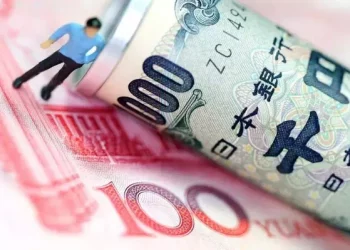EUR/JPY rebounded from its daily losses during Asian trading hours on Wednesday, trading near the 160.50 mark. However, the currency pair encountered resistance as the Japanese Yen (JPY) strengthened, ahead of a critical meeting between Japan’s Ministry of Finance (MOF), the Financial Services Agency (FSA), and the Bank of Japan (BoJ). A joint statement is anticipated following the meeting, although it is likely to offer minimal actionable insights.
The Yen’s appeal was bolstered by increased demand for safe-haven assets, driven by rising fears of a global recession, fueled by escalating tariff tensions. In addition, US President Donald Trump agreed to meet Japanese officials to discuss potential trade negotiations, enhancing expectations for a US-Japan trade agreement, which further supported the Yen.
The outlook for the JPY was also strengthened by growing expectations that the BoJ will continue to raise interest rates in 2025, spurred by persistent domestic inflationary pressures.
Euro Faces Pressure Amid Rising Risk Sentiment and ECB Dovish Expectations
The Euro (EUR) encountered headwinds as risk sentiment rose following the implementation of new US retaliatory tariffs. The EUR also faced additional pressure as market participants increasingly priced in a dovish stance from the European Central Bank (ECB). Several ECB policymakers, including Bank of Italy Governor Piero Cipollone, Bank of France Governor François Villeroy de Galhau, and Bank of Greece Governor Yannis Stournaras, have voiced support for further monetary easing in the face of mounting economic challenges.
In a move to address the economic fallout from the US tariffs, finance ministers from Eurozone countries are scheduled to meet in Warsaw on Friday. The discussions will focus on strategies to mitigate the impact of US-imposed tariffs. Governor Stournaras recently stated that the new tariffs would not hinder an April rate cut, asserting that inflation projections remain unchanged. However, he estimated that the tariffs could reduce Eurozone GDP growth by 0.3%–0.4% in the first year.
Poland’s Finance Minister Andrzej Domański warned of broader economic implications, including disrupted supply chains, rising corporate costs, and weakened European growth. Domański also highlighted the potential for “adverse social consequences” and higher consumer prices, adding further concern to the Euro’s outlook.
As the Eurozone grapples with the economic effects of tariffs, the EUR/JPY pair remains sensitive to both developments in global trade and the evolving monetary policy outlook from the ECB and BoJ.
Related Topics:
























